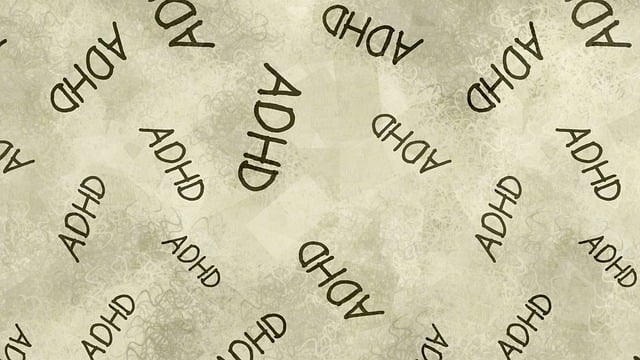The media's portrayal of mental illness greatly affects societal understanding and perceptions. Inaccurate or harmful depictions perpetuate stereotypes, hindering access to support like Denver German Speaking Therapy. This specialized therapy in Denver challenges these stereotypes, offering tailored care for diverse communities, promoting open dialogue, early intervention, and improved life outcomes. By integrating mindfulness techniques and sharing patient stories, it fosters empathy, reduces stigma, and encourages help-seeking behaviors, aligning with "mind over matter" principles for mental wellness.
In today’s media landscape, the representation of mental illness plays a pivotal role in shaping public understanding and awareness. This article explores the impact of media portrayal on mental health perception, focusing specifically on Denver and its diverse communities. We delve into the current challenges, highlighting common misrepresentations, and present solutions inspired by Denver’s German-speaking therapy practices. By fostering media literacy, cultural competence, and sharing patient stories, we aim to empower positive narratives, reduce stigma, and enhance support for mental health in Denver and beyond.
- Understanding the Impact of Media Portrayal on Mental Health Awareness
- The Current State: How Media Often Misrepresents Mental Illness in Denver and Beyond
- Bringing Change: Strategies for Accurate Representation through German-Speaking Therapy in Denver
- Engaging with Diversity: Addressing Stigma Through Media Literacy and Cultural Competence
- Empowering Voices: Patient Stories and Their Role in Shaping Positive Media Narrative
Understanding the Impact of Media Portrayal on Mental Health Awareness

The media’s portrayal of mental illness can significantly shape societal perceptions and influence public understanding of various conditions. When depicted accurately and sensitively, media platforms can serve as powerful tools for raising awareness, reducing stigma, and fostering empathy among viewers. Conversely, misleading or stereotypical representations can perpetuate negative attitudes, leading to further marginalization of individuals struggling with mental health challenges. This is particularly relevant in diverse communities, such as Denver’s German-speaking population, where specialized services like German Speaking Therapy are essential.
Accurate media representation encourages open conversations about mental wellness and normalizes seeking help. By highlighting the experiences of those affected and showcasing successful recovery stories, we can inspire hope and motivate individuals to prioritize their mental health. This is especially critical in addressing issues like burnout prevention and trauma support services, where early intervention and access to the right resources are key to fostering resilience and long-term well-being, aligning with the mind over matter principles that empower individuals to take control of their mental health journey.
The Current State: How Media Often Misrepresents Mental Illness in Denver and Beyond

In Denver and beyond, media often perpetuates harmful stereotypes and misconceptions about mental illness. Common portrayals in films, television shows, and news articles frequently reduce complex conditions to simplistic narratives, leading to a profound lack of understanding among the general public. This misrepresentation not only influences societal perceptions but also shapes the support systems available for those struggling with their mental health. For instance, individuals dealing with conditions like depression or anxiety might internalize these negative portrayals, delaying their quest for Denver German speaking therapy and hindering their recovery journey.
The current state of media representation falls short in addressing the nuanced nature of mental health issues. It often fails to differentiate between various disorders, showcasing them without the context required to foster empathy. This oversimplification contributes to the stigma surrounding mental illness, discouraging open conversations and access to essential services like Trauma Support Services or Mental Health Education Programs Design. A more responsible approach is needed to educate the public and advocate for effective Mental Health Policy Analysis and Advocacy, ensuring that those in need receive the appropriate care and support.
Bringing Change: Strategies for Accurate Representation through German-Speaking Therapy in Denver

In the pursuit of accurate mental illness representation in media, Denver German-speaking therapy practices play a pivotal role in challenging stereotypes and fostering understanding. These specialized clinics offer unique insights into cultural nuances, ensuring that narratives surrounding mental health issues resonate authentically with both German-speaking communities within Denver and beyond. By providing services tailored to specific linguistic and cultural needs, they contribute significantly to the conversation on mental well-being.
Through innovative therapy approaches, Denver’s German-speaking therapists address a range of concerns, including stress management, trauma support services, and resilience building. Their expertise lies in facilitating open dialogues about mental illness, breaking down barriers, and promoting early intervention. By embracing diverse therapeutic models, these practices not only cater to individual needs but also empower individuals to navigate their journeys with enhanced coping mechanisms and improved life outcomes.
Engaging with Diversity: Addressing Stigma Through Media Literacy and Cultural Competence

In a world where media plays a significant role in shaping public perception, it’s crucial to engage with diversity and address the stigma surrounding mental illness. Denver German speaking therapy services can be a powerful tool in this endeavor by promoting cultural competence among both therapists and the general public. By providing therapy in multiple languages, including German, these services ensure that individuals from diverse backgrounds receive care tailored to their unique needs. This approach not only fosters inclusivity but also helps to break down barriers that often prevent people from seeking help.
Media literacy is another key component in challenging mental health stereotypes. Encouraging critical thinking about media portrayals of mental illness can lead to a more nuanced understanding and reduced stigma. Additionally, integrating practices like mindfulness meditation and exploring stress reduction methods through programs focused on mental health awareness can empower individuals to take control of their well-being. Such initiatives contribute to a holistic approach to mental health support, making it accessible and relatable for all.
Empowering Voices: Patient Stories and Their Role in Shaping Positive Media Narrative

In the fight against mental illness stigma, sharing patient stories holds immense power. The media plays a pivotal role in shaping societal perceptions, and authentic narratives from those living with mental health challenges can be transformative. By giving a voice to individuals who have overcome or are navigating depression, anxiety, or other conditions, these stories offer a more nuanced understanding of mental illness, breaking down stereotypes often perpetuated by mainstream media. This approach, centered around personal experiences, is particularly impactful in communities like Denver, where German-speaking therapy services cater to diverse populations.
Empowering individuals to share their journeys fosters emotional intelligence and encourages empathy among viewers. Patient stories can inspire hope while also highlighting the importance of early intervention and access to quality care, such as that provided by German-speaking therapists in Denver. Moreover, these narratives can guide risk assessments for mental health professionals, ensuring better support for both patients and practitioners, ultimately contributing to effective depression prevention strategies.
The representation of mental illness in media plays a pivotal role in shaping public perception and awareness. By highlighting the current misrepresentations and implementing strategies for accurate portrayal, such as Denver German-speaking therapy initiatives, we can foster understanding and reduce stigma. Engaging with diversity through media literacy and cultural competence ensures that stories are told from various perspectives, empowering those with mental health experiences to share their narratives. Ultimately, these efforts contribute to a more inclusive and supportive community in Denver and beyond.













